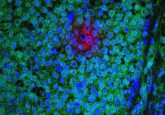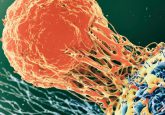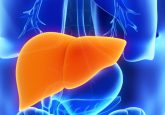Tumor cell mortality magnified by combinations of conventional and developing drugs
A multi-institutional group of researchers have published a study in the journal Translational Oncology investigating the impact of combining conventional and new drugs on tumor cell death in esophageal cancers. The study aimed to dispel uncertainty as to whether blocking cyclin-dependent kinases (CDKs) in tandem with conventional drugs, such as cisplantin and 5-FU, could potentially increase cell death and, by extension, the effectiveness of treatment. Researchers examined combinations of common conventional anticancer agents with drugs still undergoing clinical trials to assess their therapeutic impact.
Researchers from institutions across Rio de Janeiro (Brazil) investigated the capabilities of cisplatin and 5-FU to interfere with the tumor-suppressing agent pRB. Focusing on the protein family CDKs, they assessed the pRB expression in non-tumoral, precancerous and advanced-stage human esophageal biopsies, evaluating the impact of both standard and development stage drugs.
The resulting observations revealed that blocking CDKs increased tumor cell mortality while, conversely, treating cells with 5-FU resulted in the opposite effect, with the cells showing a decreased death rate and increased resistance to drugs. This revealed a positive correlation between pRB expression and cancer progression. The more advanced the tumor, the greater the lack of pRB activation.
Study leader Helena Borges (Federal State of Rio de Janeiro, Brazil) commented: “The results bring attention to studies that investigate the combination of CDKs’ inhibitors and conventional anticancer drugs. CDKs’ inhibitors seem to enhance the treatment, but depending on the situation, combining them with 5-FU can be disastrous.”
Recent findings about pRB’s role in cancer have identified it as a potential focal point for future cancer treatments with fewer side effects. Newer drugs are being developed to act on the pRB pathway, manipulating its ability to allow proper cell growth. Some of these drugs are currently undergoing clinical trials and could be incorporated into alternative anti-cancer treatments in the future.
Sources: Soletti RC, Biasoli D, Rodrigues NALV, Delou JMA, Maciel R, Chagas VLA RC et al. Inhibition of pRB pathway differentially modulates apoptosis in esophageal cancer cells. Transl. Oncolo. 10(5), 726–733 (2017); https://eurekalert.org/pub_releases/2017-08/difr-atw082817.php





